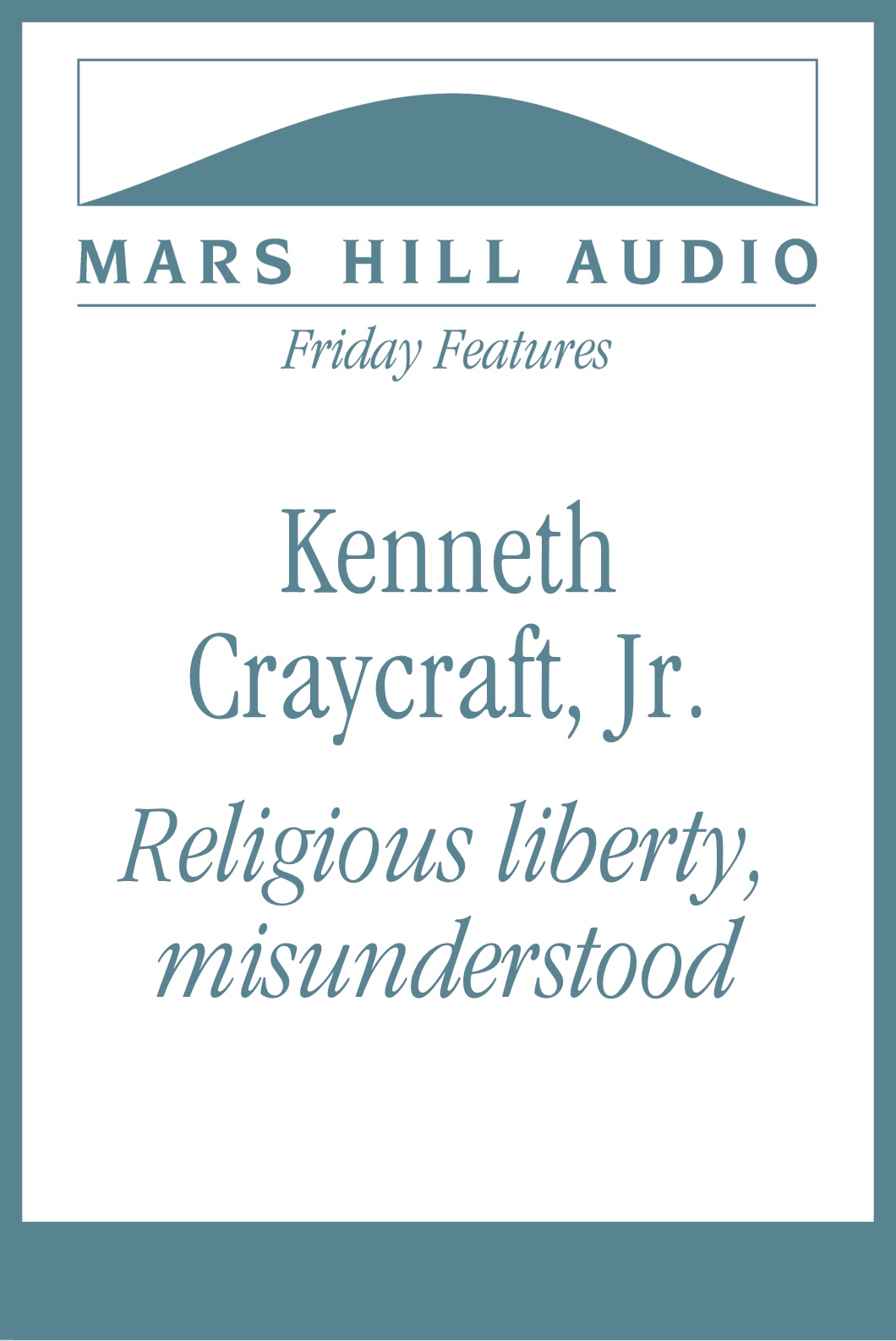released 11/6/2020
Does the First Amendment really guarantee religious liberty? It all depends on what you mean by “religion.” There is no religiously neutral definition of “the free exercise of religion.” Ken Myers talks with Kenneth Craycraft, Jr., about his book, The American Myth of Religious Freedom. One of Craycraft’s fundamental beliefs is that a theologically rich definition of religious liberty is at odds with the American definition of religious liberty.
34 minutes
PREVIEW
The player for the full version of this Feature is only available to current members. If you have an active membership, log in here. If you’d like to become a member — with access to all our audio programs — sign up here.
Related reading and listening
- Modernity and the shaping of America — FROM VOL. 48 Historian Jon Butler explains how aspects of modernity were already present and at work in colonial American life prior to 1776. (12 minutes)
- Why liberalism tends toward absolutism — In this lecture, Michael Hanby examines what causes liberalism to become dictatorial in thought and practice. (49 minutes)
- Is liberalism compatible with religious freedom? — D. C. Schindler relies on two Thomistic axioms to illustrate why liberalism — which claims to offer a minimalist conception of the common good — is ultimately incompatible with a Catholic understanding of religious freedom. (34 minutes)
- Insisting that political leaders are incapable of obeying Christ — Oliver O’Donovan on the unintended consequences of the First Amendment to the U.S. Constitution.
- Smith, Steven D. — FROM THE GUEST PAGE: Steven D. Smith is the Co-Director of the University of San Diego’s Institute of Law and Religion.
- Mars Hill Audio Journal, Volume 148 — FEATURED GUESTS:
Steven D. Smith, Willem Vanderburg, Jeffrey Bilbro, Emma Mason, Alison Milbank, and Timothy Larsen
- Freedom, ancient and modern — In a brief excerpt from David Bentley Hart’s book Atheist Delusions, and a longer excerpt from an Areopagus Lecture by D. C. Schindler, the modern view of freedom is contrasted with the understanding of freedom present in ancient Hebrew, Greek, and Roman thought. (27 minutes)
- D. C. Schindler: “For Freedom Set Free” — D. C. Schindler argues that the Christian notion of religious liberty is a synthesis of the Jewish, Roman, and Greek traditions. (61 minutes)
- Is the First Amendment religiously neutral? — David L. Schindler and Nicholas J. Healy, Jr. discuss how the First Amendment is not as sympathetic to religious freedom as is commonly believed, as it is based on contestable assumptions about the nature of “religion,” “freedom,” and “human nature.” (33 minutes)
- In defense of unity — Peter J. Leithart on the relationship between ecclesial unity and religious liberty
- Mars Hill Audio Journal, Volume 131 — FEATURED GUESTS:
John Durham Peters, Paul Heintzman, Richard Lints, Peter Harrison, Francis J. Beckwith, David L. Schindler, and Nicholas J. Healy, Jr.
- Only domesticated religions are safe to be free — Stanley Hauerwas on why “freedom of religion” carries subtle temptations
- God is more than a choice — Kenneth R. Craycraft, Jr. (and Michael Sandel) on why religious freedom is poorly understood (and vulnerable)
- Not just other-worldly concerns — William Cavanaugh on the “religionization” of Christianity
- Mars Hill Audio Journal, Volume 114 — FEATURED GUESTS: Susan Cain, Brad S. Gregory, David Sehat, Augustine Thompson, O.P., Gerald R. McDermott, and Marilyn Chandler McEntyre
- Mars Hill Audio Journal, Volume 103 — FEATURED GUESTS: Steven D. Smith, David Thomson, Adam McHugh, Glenn C. Arbery, Eric Miller, and Eric Metaxas
- Mars Hill Audio Journal, Volume 72 — FEATURED GUESTS: John Polkinghorne, Francesca Aran Murphy, James Hitchcock, Wilfred McClay, Philip McFarland, and David Hackett Fischer
- Mars Hill Audio Journal, Volume 40 — FEATURED GUESTS: Joseph Epstein, John Gray, Kenneth R. Craycraft, Jr., William T. Pizzi, Pamela Walker Laird, Albert Borgmann, Neal Stephenson, and Alan Jacobs
